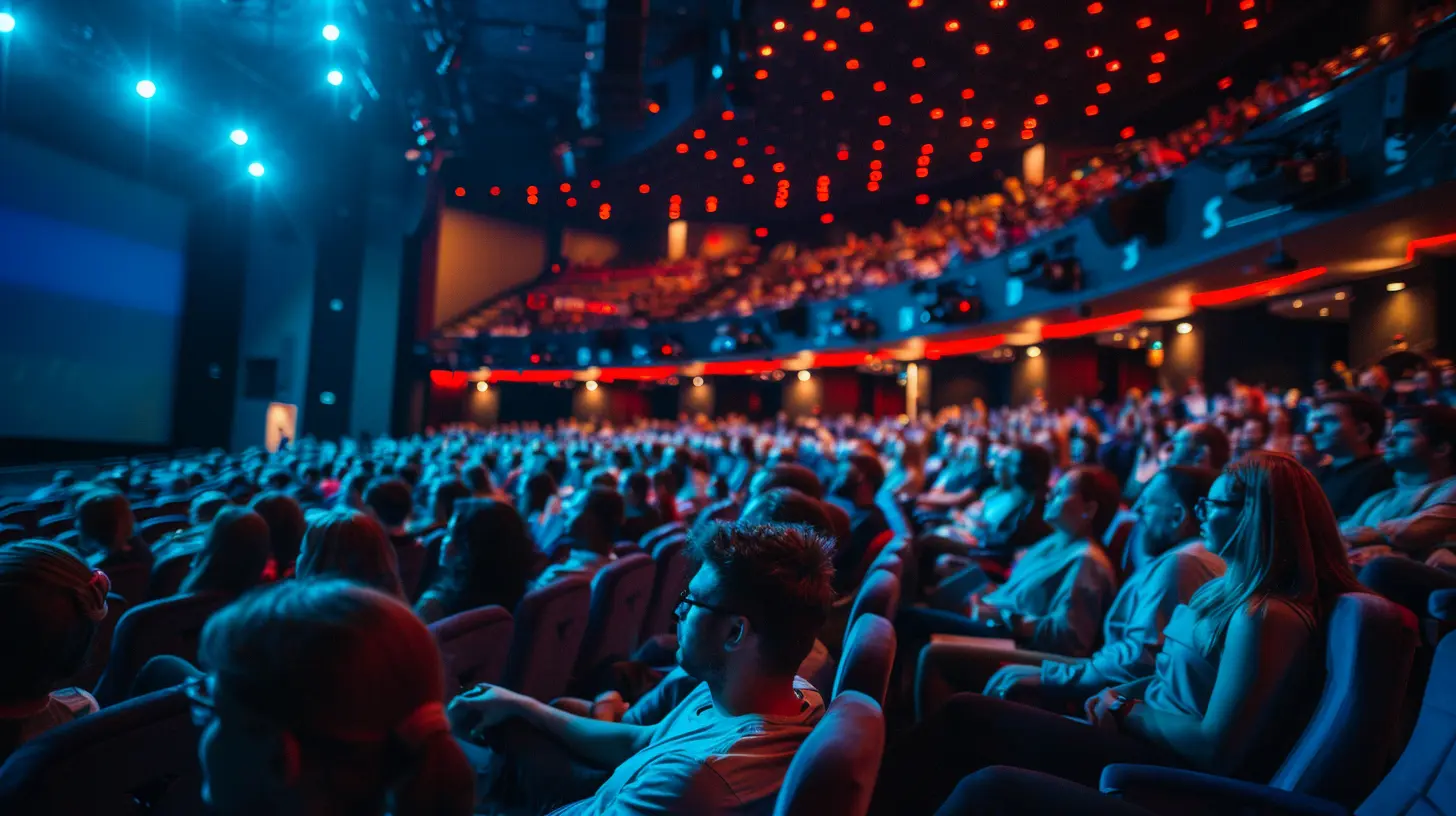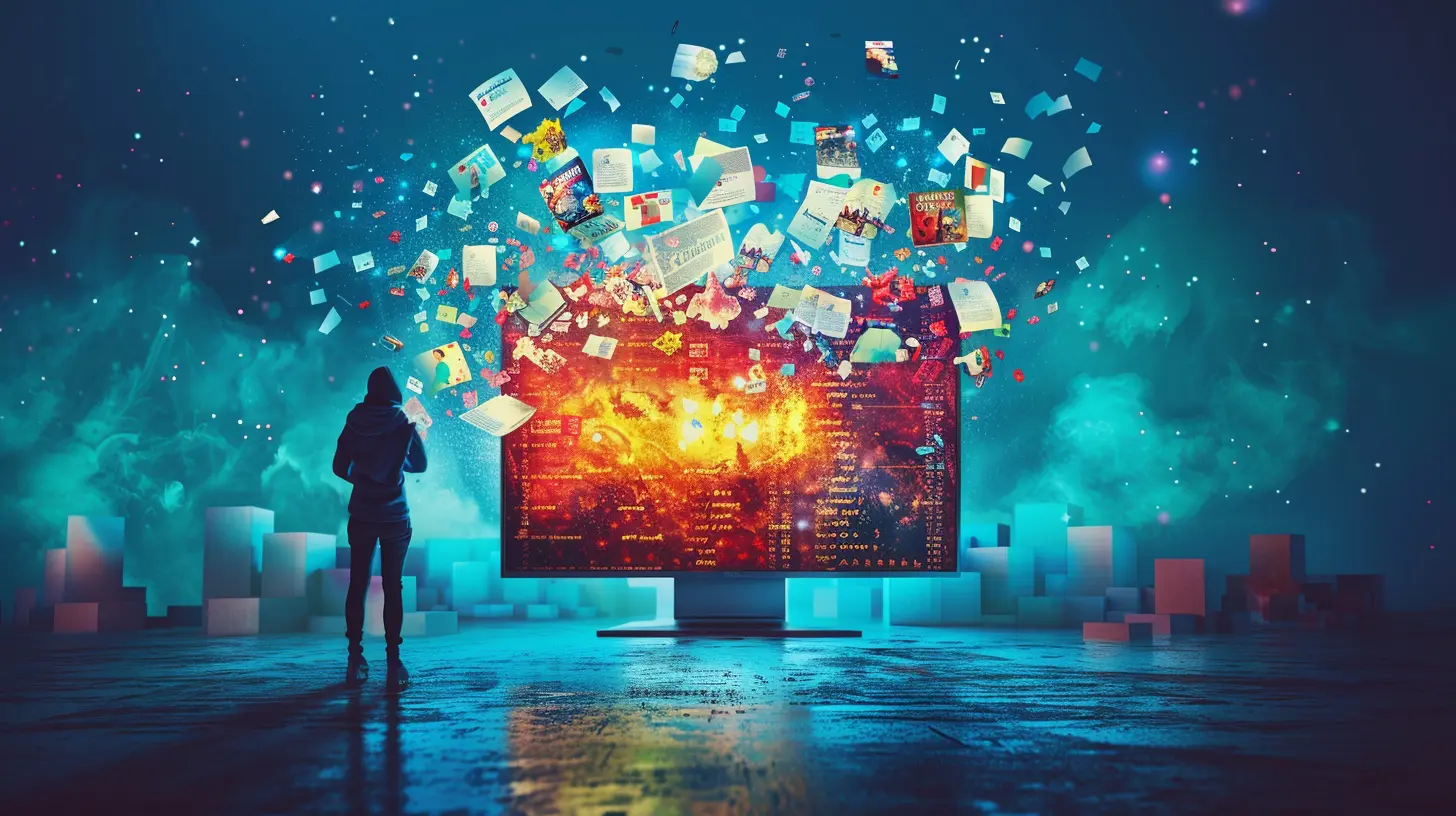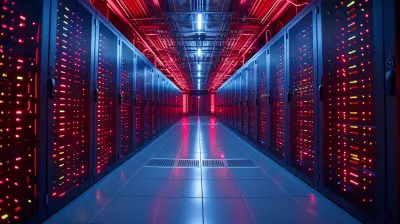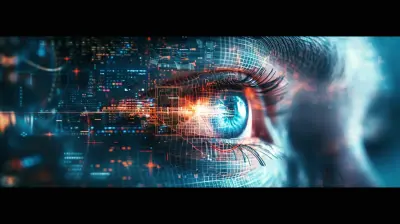How Big Data is Transforming the Entertainment Industry
5 August 2025
Big data has done more than just sneak into the entertainment industry—it’s completely taken over center stage. Think of it this way: data used to be the supporting actor, now it's writing the script, directing the scenes, and even deciding the ending. If you're wondering how Netflix always seems to recommend exactly what you want to watch or how music platforms seem to read your musical mood, you're not alone. And yes, the answer lies in big data.
Let’s break it down and see how this data revolution is reshaping every frame, every beat, and every click in entertainment.
What is Big Data, Really?
Before we dive deep, let’s clear up what we mean by “big data.” In simple terms, it’s massive volumes of data—structured, unstructured, real-time, and historical—processed and analyzed to uncover patterns, trends, and insights. When applied to the entertainment industry, it’s like giving producers, marketers, and creators a crystal ball that helps them understand what audiences want—sometimes even before the audience knows themselves!
Why the Entertainment Industry Is a Perfect Match for Big Data
If content is king, then data is the powerful advisor behind the throne. The entertainment world thrives on trends, emotions, and human behavior. And guess what big data is insanely good at? Reading and predicting those very things.- Real-time feedback? Check.
- Audience preferences? Covered.
- Market trends? Crystal clear.
Entertainment platforms generate zettabytes of data every day—from clicks, watch time, searches, likes, shares to even how long you hover over a thumbnail. And with the right analytical tools, all of that turns into insights that fuel decisions.
How Streaming Giants Use Big Data
The Netflix Effect
When it comes to using big data, Netflix is the poster child. Ever wondered how they greenlit House of Cards knowing it would be a hit? They didn’t just take a wild guess. They knew Kevin Spacey was a fan favorite. They knew political dramas were binge-worthy. They even knew what time of the week people were most likely to start a new show.Big data helps them:
- Personalize content recommendations
- Decide which original shows to produce
- Determine show success probability before production
- Optimize streaming quality based on user locations
In a nutshell, Netflix knows you better than your best friend—and possibly your partner.
Spotify Grooves to the Data Beat
Spotify doesn’t just help you vibe, it learns your vibe. Through machine learning and big data analytics, Spotify creates ultra-personal playlists like “Discover Weekly” or “Release Radar.”What’s going on behind the scenes?
- It analyzes your listening history
- Compares it with millions of others
- Predicts what songs you might like, even if they’re totally new
This isn't just cool—it’s revolutionizing music discovery and giving independent artists a fighting chance.
Big Data in Movie Production and Box Office Prediction
Think of big data like a movie scout with superpowers. It can tell filmmakers what kind of plot people are craving, when to release a movie, and which actors are trending.Scripting with Data
Screenwriters and studios are now tapping into big data platforms to see:- What themes are resonating globally
- What genres are underrepresented, yet in demand
- How certain character arcs perform
This data-driven writing process helps reduce flops and fuel hits.
Predicting Box Office Gold
By analyzing:- Social media buzz
- Trailer engagement
- Past actor performance
- Pre-release sentiment
Studios can gauge a movie’s success before it hits theaters. It’s like your movie already has reviews before the curtains even rise.
Changing the Advertising Game
Remember those trailers that used to play before movies or YouTube videos that felt totally irrelevant? Big data is making those dinosaurs extinct.Targeted Promotions
Using real-time user data, entertainment marketers can now:- Serve personalized ads
- Retarget users who showed interest
- Promote genre-specific trailers to niche audiences
So if you're a die-hard sci-fi fan, you're no longer bombarded with rom-com trailers. Hallelujah!
Social Sentiment Analysis
Marketers also track what fans are saying on platforms like Twitter, Reddit, and TikTok. This helps them:- Tweak campaigns in real-time
- Identify viral content early
- Engage influencers in the right niche
It’s like having a focus group of millions available 24/7.
Fan Engagement and Interactivity
Big data isn't just a behind-the-scenes wizard. It's also changing how fans experience content.Interactive Content
Ever played a Netflix interactive movie like Bandersnatch? That’s data-driven storytelling in action. By tracking how audiences interact with choices, content creators can develop richer, adaptive experiences.Live Feedback Loops
Live events, like sports and concerts, now incorporate real-time data to:- Adjust lighting and music based on crowd vibes
- Streamline entry and exit points using user flow data
- Offer pop-up deals on concessions and merch based on demand
It’s not just a show anymore—it’s a tailored experience.
The Gaming Industry: A Data Playground
Gaming is another entertainment vertical where big data goes absolutely wild.Player Behavior Insights
From how long you play to what levels you get stuck on, gaming companies track it all. They use that data to:- Adjust difficulty levels
- Personalize in-game content
- Predict churn and prevent it with in-game rewards
Monetization That Makes Sense
In-game purchases? Loot boxes? Skins? Those aren’t just randomly priced. Big data helps developers understand spending behavior and optimize pricing models accordingly.It’s strategic, not sneaky (well… most of the time).
Ethical Concerns: Is Big Data Getting Too Personal?
With great power comes—you guessed it—great responsibility. The entertainment industry needs to tread carefully. Using data to enhance experiences is one thing, but overstepping into privacy invasion is another.Some burning questions:
- Are users truly consenting to all tracking?
- How safe is this data from breaches?
- Are creators sacrificing art for algorithms?
These are critical issues that need constant scrutiny. Transparency and regulation must evolve alongside technology.
Emerging Trends: What’s Next?
So, where’s all this headed? Glad you asked.AI-Assisted Content Creation
Imagine AI writing the next blockbuster. With enough data on what makes a hit, it’s entirely possible. We’re already seeing:- AI-generated scripts
- Deepfake actors
- Automated video editing tools
Hyper-Personalized Content
Soon, your version of a show might be different from someone else’s. Based on your data, storylines could adapt in real-time—think of it as a digital choose-your-own-adventure on steroids.Data + VR/AR = Total Immersion
With VR and AR entering the chat, data will drive immersive experiences that feel shockingly real. Picture watching a concert from your couch but feeling like you’re in the front row—all because data knows your preferences in lighting, volume, and performer proximity.Final Thoughts
Big data has become the backbone of modern entertainment. It’s helping deliver smarter content, smoother user experiences, and more profitable businesses. But like every good story, there's a twist: we need balance. While data enhances creativity, it should never replace the human touch—the gut feeling, the “aha” moment, the raw emotion.The real magic happens when creativity meets intelligence. And in the entertainment world, that duo is now powered by big data.
all images in this post were generated using AI tools
Category:
Big DataAuthor:

Michael Robinson
Discussion
rate this article
1 comments
Wynter Mitchell
This article brilliantly highlights the profound impact of big data on the entertainment industry. It’s fascinating to see how data-driven insights are reshaping content creation and audience engagement strategies. Great read!
August 16, 2025 at 11:45 AM

Michael Robinson
Thank you for your thoughtful comment! I'm glad you found the article insightful and relevant to the evolving landscape of entertainment.


